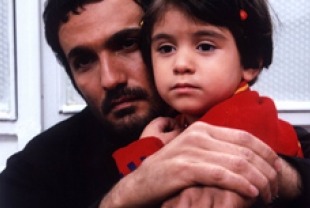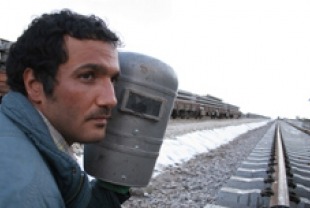Mahmoud (Mohammad-Reza Foroutan) is a railway welder whose job keeps him far from home and his young wife Pari (Niloofar Khoshkholgh), who has a nervous disorder that falls under the classification of a mental illness. When he learns that she has mysteriously disappeared, he is worried and asks his boss for some time off. Mahmoud returns home in the pouring rain to an empty place; his wife has taken their young daughter to stay with relatives and has fled with some money. This embarrassing situation has generated plenty of gossip in the neighborhood, especially by their landlady. A male neighbor is convinced that she has run off with another man and reminds Mahmoud that he told him a while back not to leave his young wife home alone. At the police station, the desperate husband fills out all the forms about his missing wife. He tries to track down an uncle who has moved and ends up having to bribe a mover for information about him. When a detective learns about Mahmoud's plight, he jokingly says that he would pay a lot of money for his wife to leave home.
This Iranian film directed by Maziar Miri reveals the shabby treatment of women and the social stigma attached to one who leaves home. Religion gives all the power to men. According to custom, once the wife is found, she can be jailed, divorced, or killed. Mahmoud eventually winds up at the morgue and concludes that a faceless corpse is his wife. At great expense, he pays for her funeral, only to learn afterwards that a butcher has seen Pari in Teheran. When Mahmoud catches up with her, she tells him what happened. Thanks to the immense pressure on the husband who has been shamed and humiliated, the solution they come up with is quite sad but necessary. Gradually . . . reveals the dark clouds created in the repressive Iranian society.
Screened at the New Directors/New Films Festival in New York City, March 2007.

